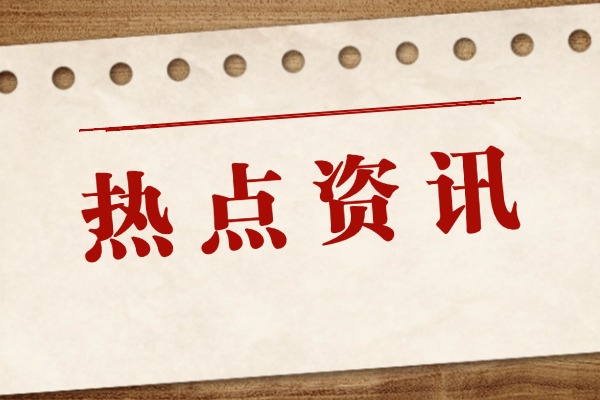“五十步笑百步”的意思是什么?这个成语故事的英文翻译是怎样的?
“五十步笑百步”这个成语出自战国时期,战国时期的时候有很多的经典的典故,先前小编给大家讲述的很多的成语故事都是来自战国时期。而今天我们要来讲述的这个成语“五十步笑百步”的意思也是源自这个故事的一些有趣的瞬间。而为了增加故事的趣味性,小编用幽默的话语来给大家讲述,各位小朋友要大声的朗读出来,后面还有有意思的英文故事。

“五十步笑百步”的意思及典故
战国时期,就像这个时代的名字一样,“战”是经常的事,但是呢,也就是因为经常打仗,所以战争的规模和残酷性也是相对较低的,大家打之前要有礼貌,先是问问中午吃的什么“张伯伯,你今天中午家里烧了什么吃?”
“昨天晚上的冷黄豆,热了一下拌了肉酱,小刘啊,吃饭要像我不要浪费,对了,上次被我扎了一下,你屁股还痛吗?”
“啊呀,我那是装的,看你年纪大给你留面子的”
“小刘啊,不是我说你,被老头子打败了也是很正常,什么装的,有本事你坐下来呀!”
“张老头,你不要太过分,当心我们大军压上,狠揍你,好好给你打一顿。”
“牛皮不是吹的,有本事就来啊!”
“来就来!”
就这样,经过几句亲切友好的对话以后才会正式开打,而且,这还没结束,打仗也是比较和气,打不过的人就会跑,不经常搞出人命,当时就有这样的规矩,向自己的后方逃跑50步,敌人就不能追了,要放别人一条生跑,小兵阿三就是这样一个吃了败仗的人,他当兵不久,拿着兵器上阵几个来回以后发现不妙,对方是人强马壮,反观自己这边呢都是老弱残兵,阿三打仗不行但是脑子活络,感觉不对拔腿就跑,一口气就是50多步,心想“这回小命算是保住了。”正当他站在后方喘气的时候,只听到耳边是一阵风声,呼得一下过去一个大黑影,仔细一看,原来是同村的小黑,外号大黑牛,这个人身高体壮,平时在村里也没少欺负自己,但没想到上了战场,两个人是难兄难弟,这头大黑牛也是玩命逃跑,而且是一口气跑出了100多步,引得阿三是大声笑道:“大黑牛,你这个胆小鬼!”
真是有意思,贪生怕死的阿三这样嘲笑别人,所以五十步笑百步这句成语呢就是说一个做得差的人,去厚着脸皮笑话别人做得比自己还差,这真正是“不要脸”。
“五十步笑百步”英文小故事
Liang Hui Wang was the ruler of the Liang state during the Warring states Period in ancient China. from 371-335 BCE.
Liang Hui Wang sent his army into many wars with nearby states. It felt like there were endless battles. Many people died.The people of Liang became fearful. Many ran away because they did not want to go to war.
The great thinker Mengzi visited Liang Hui Wang. They sat together by a pond watch the swimming geese and grazing deer.The ruler was worried about his people running away, so he asked Mengzi for advice.
"Mengzi, I think I am a good ruler.I care for my people. I look after them when there is a bad harvest. If the crops fail to grow in the south, I move the people to the north .If there is a bad harvest in the north ,I move the people south, "Liang Hui Wang said.
He continued. "The rulers of other states are not like me. They don't care about their people like I care about mine. They don't help them when they are hungry. Yet their people don't run away. The number of people in their states is growing number of people in Liang has not grown at all. Why is this?”
My lord, Mengzi began, You like battle, yes? Let me use the battlefield to show you.
Two states are at war. Foot soldiers with swords and spears race toward each other,” Mengzi began.“ There is fighting. There is bloodshed. One side is winning. The other side falls back.Soldiers on the losing side begin to run away. They don't want to get captured. Some soldiers run fast. Others run slower.
Yes, said Liang Hui Wang as he listened intently.
A fast soldier runs 100 steps. A slower soldier runs 50 steps, Mengzi continued.The soldier running50 steps looks ahead. He sees the soldier running 100 steps. He laughs at the faster soldier and calls him a coward.”
"Do you think the slower soldier is right to judge the other? "asked Mengzi.
"No, not at all, "Liang Hui Wang replied."The soldier that runs 50 steps is running away too."
“ So you see?” Mengzi asked.
"I do," Liang Hui Wang replied. "The soldier running 50 steps is just slower. He has not reached 100 steps yet. He is not doing anything differently. They are both running away."
“ Exactly, said Mengz.“ The soldier that runs 50 steps has no right to judge the soldier that runs 100 steps. He is no better.
"You are right, my lord, "said Mengzi. "And you are also right about the other rulers. They may not care for their people during hard times the way you do. But you send your people into battle all the time. When you do this, you are not caring for your people either, Mengzi explained. 50 steps should not laugh at 100 steps."
The idiom, "50 Steps Laughing at 100 Steps "ridicules people who areunaware of their own flaws and feel superior to others.
词汇
ruler--- n.--- 统治者
graze--- v.---(牛、羊等)啃食牧草
harvest ---n.---丰收
battlefield ---n.---战场
sword ---n.---剑
spear ---n.---矛
bloodshed ---n.---流血,杀戮
capture ---v.---俘虏,捕获
intently ---adv.---急切地,专注地
coward--- n.---胆小鬼
ridicule--- v.---嘲笑
unaware ---adj.---未认识到的,未觉察到的
flaw---n.---缺点
superior ---adj.---有优越感的
- 热门课程
- 热门资讯
- 热门资料
- 热门福利
-
 黄河小班课人数多吗?教学效果怎么样?黄河小班课之前就有家长和学生想要了解过,今天为了满足大家的要求,小编就来好好给大家解答一下关于黄河小班课的一些内容,让大家能够更加方便地做出选择。 一、黄河小班课人数多吗? 黄河小班课的人数控制得挺讲究,既不是那种三五个人的微型小组,也不会像其他学校那样挤着四五十个人,一个班大概在6到15人
黄河小班课人数多吗?教学效果怎么样?黄河小班课之前就有家长和学生想要了解过,今天为了满足大家的要求,小编就来好好给大家解答一下关于黄河小班课的一些内容,让大家能够更加方便地做出选择。 一、黄河小班课人数多吗? 黄河小班课的人数控制得挺讲究,既不是那种三五个人的微型小组,也不会像其他学校那样挤着四五十个人,一个班大概在6到15人 -
 “白驹过隙”怎么读?到底有什么含义?“白驹过隙” 是形容时光的经典表达,可你真能笃定 “驹” 字读 “jū” 而非 “jú”?而且 “白驹” 为何是 “白色的小马”,“过隙” 又特指什么缝隙? 一、“白驹过隙”怎么读? “白驹过隙”的正确读音是bái jū guò xì,“白驹”指白色的骏马,常被引申为太阳的光芒或飞速流逝的时
“白驹过隙”怎么读?到底有什么含义?“白驹过隙” 是形容时光的经典表达,可你真能笃定 “驹” 字读 “jū” 而非 “jú”?而且 “白驹” 为何是 “白色的小马”,“过隙” 又特指什么缝隙? 一、“白驹过隙”怎么读? “白驹过隙”的正确读音是bái jū guò xì,“白驹”指白色的骏马,常被引申为太阳的光芒或飞速流逝的时 -
 博大单招在文化课提升方面优势如何?补习效果好吗?单招相信第一次接触的家长和同学们有很多问题都不了解,很多家长为了让孩子更好地学习就去选择一个合适的单招补习,那么博大单招在这方面的优势到底怎么样?能不能帮助孩子更好地提升呢?今天我们就来一起好好了解一下。 一、博大单招在文化课提升方面优势如何? 博大单招在文化课提升这方面那真的是研究得透透的
博大单招在文化课提升方面优势如何?补习效果好吗?单招相信第一次接触的家长和同学们有很多问题都不了解,很多家长为了让孩子更好地学习就去选择一个合适的单招补习,那么博大单招在这方面的优势到底怎么样?能不能帮助孩子更好地提升呢?今天我们就来一起好好了解一下。 一、博大单招在文化课提升方面优势如何? 博大单招在文化课提升这方面那真的是研究得透透的 -
 “琨玉秋霜”怎么读?到底有什么含义?“琨玉秋霜” 中的“玉” 和 “秋霜” 都是自带高洁感的意象,可 “琨” 字到底读 “kūn” 还是 “hún”?单看字面像在描绘玉石与秋霜的景致,却猜不透为何要将这两种事物组合,更不清楚它的核心指向是写景、咏物还是喻人。今天咱们先把读音校准,再拆解这四字里藏着的纯粹与庄重。 一、“琨玉秋霜”
“琨玉秋霜”怎么读?到底有什么含义?“琨玉秋霜” 中的“玉” 和 “秋霜” 都是自带高洁感的意象,可 “琨” 字到底读 “kūn” 还是 “hún”?单看字面像在描绘玉石与秋霜的景致,却猜不透为何要将这两种事物组合,更不清楚它的核心指向是写景、咏物还是喻人。今天咱们先把读音校准,再拆解这四字里藏着的纯粹与庄重。 一、“琨玉秋霜”
-
 2022高考英语基础知识点!西安伊顿老师带你了解!2022高考英语基础知识点!西安伊顿老师带你了解!高中的英语是一个需要长期积累以及记忆的科目,在高考中只有针对这些知识进行一定的了解和积累,才可以在考试中取得好成绩。针对这种情况,小编请到了西安伊顿老师来给大家总结归纳一下关于高考英语基础知识点的记忆内容,希望对大家有所帮助。对于英语还是需要靠日
2022高考英语基础知识点!西安伊顿老师带你了解!2022高考英语基础知识点!西安伊顿老师带你了解!高中的英语是一个需要长期积累以及记忆的科目,在高考中只有针对这些知识进行一定的了解和积累,才可以在考试中取得好成绩。针对这种情况,小编请到了西安伊顿老师来给大家总结归纳一下关于高考英语基础知识点的记忆内容,希望对大家有所帮助。对于英语还是需要靠日 -
 关于“呐喊与行动那个更重要”的辩论稿写作指导!一直以来,辩论稿的写作都是大家司空见惯的,但是也是很多同学容易忽视的。现在的语文作文考察的范围和广度越来越大,涉及到的文体也越来越多,因此大家在备考语文作文的时候,还是要增加自己的知识面,增加自己的见识。辩论稿大家见得比较多,但是在语言文字上以及结构上的学习,还是非常值得探究的,下面小编给大家分享了一则辩论稿,大家可以练习一下。
关于“呐喊与行动那个更重要”的辩论稿写作指导!一直以来,辩论稿的写作都是大家司空见惯的,但是也是很多同学容易忽视的。现在的语文作文考察的范围和广度越来越大,涉及到的文体也越来越多,因此大家在备考语文作文的时候,还是要增加自己的知识面,增加自己的见识。辩论稿大家见得比较多,但是在语言文字上以及结构上的学习,还是非常值得探究的,下面小编给大家分享了一则辩论稿,大家可以练习一下。 -
 “直播带货”有关的作文写作指导!立意和审题指导!高中的作文写作更多的是来自于社会现象的思考,或者生活的思考,所以高中的同学在写作文的时候可以从生活细节入手,寻找素材,因为任何题目都是取之于生活,进而引发的一系列的思考行为。本次伊顿教育小编给大家分享的这篇作文也是一个社会现象的评述,材料内容是关于“直播带货”,这个大家都是不陌生的,而且有的同学也是参与者,所以对于此也是非常的熟悉的。下面我们可以来看看这篇作文写作的指导。
“直播带货”有关的作文写作指导!立意和审题指导!高中的作文写作更多的是来自于社会现象的思考,或者生活的思考,所以高中的同学在写作文的时候可以从生活细节入手,寻找素材,因为任何题目都是取之于生活,进而引发的一系列的思考行为。本次伊顿教育小编给大家分享的这篇作文也是一个社会现象的评述,材料内容是关于“直播带货”,这个大家都是不陌生的,而且有的同学也是参与者,所以对于此也是非常的熟悉的。下面我们可以来看看这篇作文写作的指导。 -
 2021年9月山水联盟高三开学联考数学试卷及答案(原版)!2021年9月山水联盟高三开学联考已经结束,伊顿教育小编给大家整理了本次联考的数学试卷以及答案,各位相关的小伙伴可以参考一下。对于高三的学习,小编建议大家在每一次的考试之后,都能够仔细的分析一下自己的失分点,对于自己没有掌握的知识点可以尽早的掌握。
2021年9月山水联盟高三开学联考数学试卷及答案(原版)!2021年9月山水联盟高三开学联考已经结束,伊顿教育小编给大家整理了本次联考的数学试卷以及答案,各位相关的小伙伴可以参考一下。对于高三的学习,小编建议大家在每一次的考试之后,都能够仔细的分析一下自己的失分点,对于自己没有掌握的知识点可以尽早的掌握。


















 All right reserved
All right reserved
